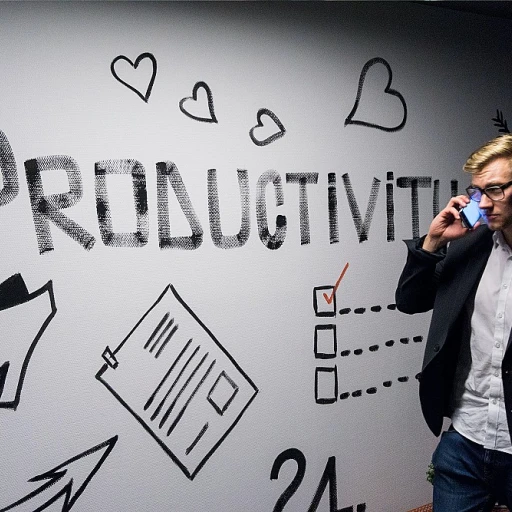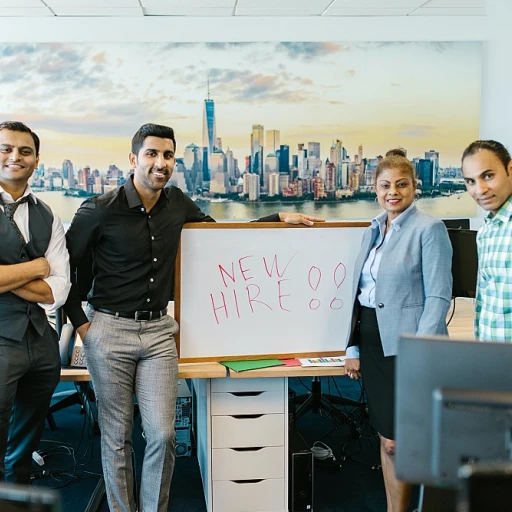
Understanding the importance of human relations skills in HR interviews
The Role of Human Relations in HR Interviews
When preparing for HR job interviews, understanding the significance of human relations skills is essential. These skills are not just about being friendly; they are fundamental to the success of any organization. Human resources professionals are expected to help people work together, resolve conflicts, and foster a positive workplace environment. The ability to manage employee relations, communicate effectively, and support talent acquisition can set you apart from other candidates.
Modern businesses recognize that good human relations skills drive employee engagement and organizational success. Management theory has evolved to emphasize the importance of soft skills alongside technical skills. For example, effective communication, active listening, and body language awareness are now seen as critical components of relations management. These abilities help HR professionals build trust with employees, support management, and contribute to a productive team atmosphere.
- Communication skills: Clear and open communication helps prevent misunderstandings and supports decision making.
- Conflict resolution: Addressing disagreements quickly and fairly maintains harmony among employees.
- Employee engagement: Motivating and involving employees leads to better performance and retention.
- Problem solving: Finding solutions to workplace challenges demonstrates strong relations skills.
Employers look for candidates who can demonstrate these skills during interviews. They want to see how you would apply human relations theory in real workplace situations, whether in a large corporation or a small business. Your ability to share examples of effective relations management and employee support will help you stand out.
For a deeper dive into mastering these essential skills and preparing for your next HR interview, explore our comprehensive guide to human relations skills for HR job interviews.
Common human relations challenges faced during interviews
Recognizing Real-World Human Relations Challenges
During HR job interviews, candidates often encounter scenarios that test their human relations skills in practical ways. These challenges are not just theoretical; they reflect the daily realities of working with people in any organization. Understanding these obstacles will help you prepare for questions and exercises that assess your ability to manage workplace dynamics.
- Managing Conflict: Conflict resolution is a core skill in human resources. Interviewers may ask about times you helped people navigate disagreements or resolved issues between employees and management. Being able to discuss your approach to conflict shows your understanding of relations management and your ability to maintain a positive workplace.
- Effective Communication: Good human relations depend on clear, respectful communication. Candidates are often challenged to demonstrate their communication skills, both verbal and non-verbal, such as body language. This is essential for employee engagement and building trust within a team.
- Balancing Technical and Soft Skills: While technical skills are important, HR roles require strong soft skills, like empathy and decision making. Interviewers may present scenarios where you must balance business needs with employee well-being, testing your ability to apply management theory in real situations.
- Promoting Employee Engagement: Keeping employees motivated and involved is a challenge for any HR professional. You may be asked how you would help foster a positive work environment or support talent acquisition and retention strategies in a small business or larger organization.
- Adapting to Diverse Workplaces: Modern workplaces are diverse, and HR professionals must be able to work with people from various backgrounds. Interviewers might explore your experience with inclusion, team collaboration, and adapting management practices to suit different employee needs.
These challenges reflect the evolving nature of human resources, where success depends on a blend of theory and practical application. For more insights on how to develop these skills and master professionalism in the workplace, you can read about effective training for workplace professionalism.
| Challenge | Key Skills Involved | Impact on Career |
|---|---|---|
| Conflict Resolution | Problem solving, communication, empathy | Builds trust and supports employee retention |
| Employee Engagement | Relations management, motivation, team building | Drives organizational success and talent development |
| Diversity & Inclusion | Adaptability, cultural awareness, decision making | Enhances workplace harmony and innovation |
How to highlight your human relations skills effectively
Showcasing Your Human Relations Strengths in Interviews
When you step into an HR job interview, your ability to demonstrate strong human relations skills can set you apart from other candidates. Interviewers look for more than just technical skills; they want to see how you interact with people, handle workplace challenges, and contribute to a positive business environment. Here are some practical ways to highlight your strengths in this area:
- Share real examples: Use specific situations from your past work experience to show how you have helped employees, resolved conflicts, or improved team communication. This approach gives credibility to your claims and shows your understanding of human relations management theory.
- Emphasize effective communication: Talk about times when your communication skills helped people in your organization. Mention how you used active listening, clear messaging, or body language to support employee engagement or resolve misunderstandings.
- Highlight teamwork and collaboration: Describe how you worked with others to achieve business goals, support talent acquisition, or foster a positive workplace culture. Good human relations skills are essential for building strong teams and supporting management in small business or large organizations.
- Discuss problem solving and decision making: Explain how you approached complex situations, balanced employee needs with management objectives, and contributed to the overall success of your team. This shows your ability to apply both soft skills and management theory in real-world settings.
- Connect to HR best practices: Reference recognized approaches, such as employee engagement strategies or conflict resolution techniques, to demonstrate your knowledge of what works in human resources. This will help interviewers see you as someone who can help people and drive business results.
Remember, your goal is to present yourself as a well-rounded HR professional who understands the importance of human relations in the workplace. For more insights on how your experience can make a difference in your HR career, check out this guide on celebrating your 5 year anniversary at work and what it means for your HR interview.
Behavioral questions that test human relations skills
Behavioral Questions Reveal Your Real Human Relations Skills
In HR job interviews, behavioral questions are a key tool for employers to assess your human relations skills. These questions focus on real-life situations you have faced at work and how you handled them. The goal is to understand how you apply communication, conflict resolution, and decision making in the workplace, especially when working with employees, management, or teams. What Interviewers Want to Know- How you use effective communication skills to help people and resolve misunderstandings
- Your approach to employee engagement and building positive relations within the organization
- How you apply management theory and soft skills to solve problems and improve business outcomes
- Your ability to work with diverse teams and support talent acquisition or talent management
- "Tell me about a time you had to resolve a conflict between two employees. What steps did you take and what was the result?"
- "Describe a situation where you had to communicate a difficult message to a team or individual. How did you ensure your message was understood?"
- "Share an example of how you helped improve employee engagement or relations in your previous workplace."
- "Can you give an example of a time when you used your problem solving skills to address a challenge in a small business or large organization?"
- Use the STAR method (Situation, Task, Action, Result) to structure your answers clearly
- Highlight both your technical skills and your good human relations skills
- Show how your actions benefited the business, team, or employee involved
- Mention any management or communication theory you applied, if relevant
- Pay attention to your body language and tone, as these are part of effective communication
Mistakes to avoid when discussing human relations skills
Common Pitfalls When Presenting Human Relations Skills
During HR job interviews, candidates often make mistakes when discussing their human relations skills. These errors can undermine your credibility and make it harder for interviewers to see your true potential. Understanding these pitfalls will help you present yourself as a strong, people-focused professional ready to contribute to any organization.
- Overemphasizing Technical Skills: While technical skills are important, HR roles require a balance between technical knowledge and strong human relations. Focusing only on systems or processes without mentioning your ability to work with people, manage conflict, or foster employee engagement can make you seem less suited for HR positions.
- Using Vague Language: Avoid general statements like "I am good with people" or "I have strong communication skills." Instead, share specific examples that show how your communication, conflict resolution, or team management skills have helped employees or improved workplace relations.
- Ignoring Management Theory: HR interviewers often look for candidates who understand the theory behind effective human relations, such as the importance of employee motivation or the impact of management styles on workplace success. Failing to reference these concepts can make your answers seem less informed.
- Neglecting Soft Skills: HR is about more than policies and procedures. Highlighting soft skills like empathy, active listening, and effective communication will help demonstrate your ability to support talent acquisition, employee engagement, and relations management.
- Not Addressing Conflict Resolution: Every workplace faces challenges. If you avoid discussing how you handle disagreements or difficult situations, interviewers may question your ability to maintain a positive work environment.
- Forgetting Body Language: Your non-verbal communication during the interview is just as important as your words. Poor eye contact, closed posture, or nervous gestures can send the wrong message about your confidence and ability to connect with people.
Tips to Avoid These Mistakes
- Prepare real-life examples that show your human relations skills in action, such as helping a team resolve a conflict or supporting employee engagement initiatives.
- Connect your experiences to broader business and management theory, demonstrating an understanding of how good human relations drive organizational success.
- Practice effective communication, both verbal and non-verbal, to build trust and show your readiness for a career in human resources.
By being mindful of these common mistakes, you will help interviewers see your strengths in human relations, setting yourself apart as a valuable asset for any HR team, whether in a small business or a larger organization.
Preparing for role-play and situational exercises
Getting Ready for Realistic Scenarios
Role-play and situational exercises are common in HR job interviews, especially for positions that require strong human relations skills. These exercises are designed to simulate real workplace challenges, allowing interviewers to assess your ability to manage people, resolve conflicts, and demonstrate effective communication in action.- Understand the Purpose: These exercises test your practical application of human relations theory, not just your technical skills. Interviewers want to see how you handle employee engagement, conflict resolution, and decision making under pressure.
- Review Common Scenarios: You might be asked to mediate a disagreement between employees, address a team member’s performance issue, or respond to a management challenge. Familiarize yourself with typical workplace situations in HR, such as onboarding, talent acquisition, or employee relations management.
- Practice Effective Communication: Your ability to listen, share feedback, and use positive body language will help you stand out. Good human relations depend on clear, respectful communication skills, especially when emotions run high.
- Demonstrate Problem Solving: Show how you approach problems logically and empathetically. Use examples from your career to illustrate how you’ve helped people or teams succeed, even in small business environments.
- Stay Professional and Human: Remember, the goal is to show you can balance business needs with employee well-being. Draw on management theory and real experience to support your responses, but don’t be afraid to show your human side.
Tips for Success in Exercises
- Listen carefully to the scenario and clarify any uncertainties before responding.
- Take a moment to organize your thoughts. Structured answers show strong decision making and relations management skills.
- Highlight your soft skills, such as empathy, adaptability, and teamwork, alongside your technical knowledge.
- Reference best practices in employee engagement and conflict resolution, drawing on proven approaches in human resources.
- Be mindful of your body language and tone, as these non-verbal cues are key indicators of effective communication in the workplace.













